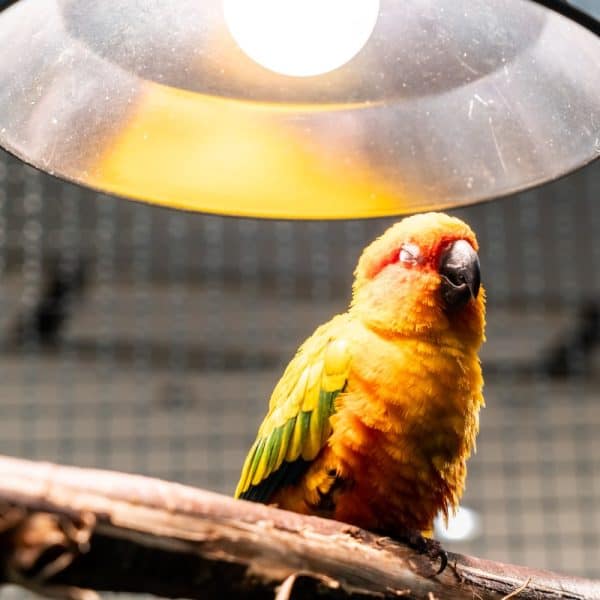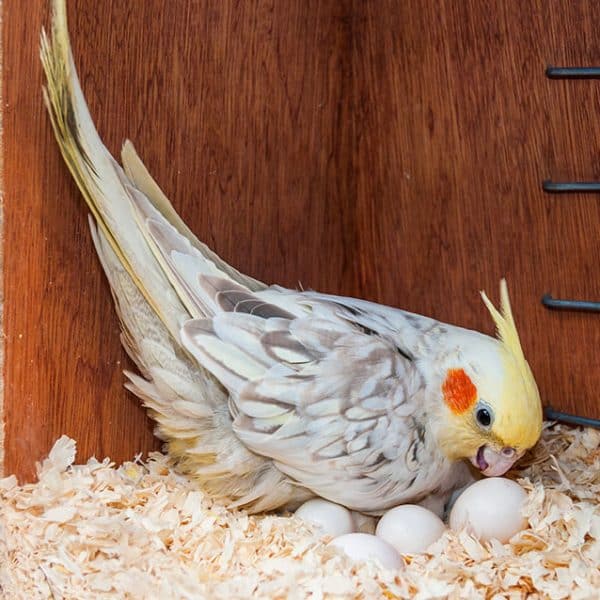Last Updated on by Catherine Tobsing
Inna asks,
Hello. We have a 7 year old African grey.
Unfortunately, we made a mistake and did not train him properly.
We are having problems with his behavior.
He attacks. He bites. He is angry.
He only obeys one person in the house.
Is it too late to train him?
Who can we turn to?
Thank you.
Greetings Inna,
I’m sorry for the problems you are having, this is fixable.
Before moving forward let’s talk about why this might be happening.
It is normal for African grays both Timnehs and Congos to bond with an individual at a young age.
What is opaque to most humans is that African grays will bond with an entirely different individual around the age of 5, 6 or seven.
This is an evolutionary issue.
It helps keep the flock healthy by reducing and or eliminating any inbreeding.
The bird will initially bond with mom or dad but will choose a non-family mate going into adolescence.
In other words, the birds are smart enough to know not to mate with a family member.
It weakens the species.
Unfortunately, this is a behavior that few humans expect.
A simple first step, assuming the bird’s cage and food dishes can be accessed from the outside of the cage is to have everyone in the household drop a favored treat in the food dish once or twice a day – while the bird is in the cage.
This will signal to the bird that everybody in the household can make good things happen when they come close.
Next, we need to add bright or full spectrum lighting no higher than 6 inches over the cage on a timer.
Your bird is expecting “equatorial” light cycles but is getting North American light cycles that change daily.
This is a major stress point that triggers negative hormonal behavior.
By putting a light over the top of the cage and ensuring that the bird is in the cage when the light goes on and the light goes off in 12 hours cycles of light and darkness using a connected timer your bird will have a better understanding of when the day starts and when the day ends every 12 hours just like in the Serengeti plains of central Africa.
Please ignore daylight savings time as it has no meaning to the bird and is confusing which translates to stress so no need to adjust the timer. The lights will just come on an hour earlier or later than the prior season.
The next step is to introduce clicker training starting with the one individual the bird has bonded to at this point in time.
Here is a collection of clicker training videos that will help you better understand the use and benefits of bird clicker training.
All the family members should be able to handle the birds with some sort of “stick”. We recommend the long perch that comes with the cage because it really has no use in a birdcage.
To assist you at a more granular level I would need to know the bird’s diet including name brands and pictures illustrating the entire birdcage and birdcage setup.
Looking forward to hearing back from you
Best
MitchR
Author Profile
Latest entries
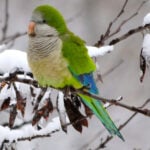 The Traveling BirdJune 26, 2025Can You Name 5 Parrot Species That Are Living Wild in the USA?
The Traveling BirdJune 26, 2025Can You Name 5 Parrot Species That Are Living Wild in the USA?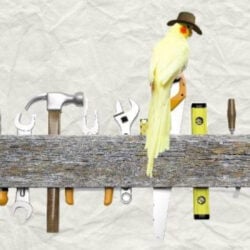 Bird BehaviorJune 26, 2025How is it Parrots Are Problem Solvers Social Animals and Even Use Tools?
Bird BehaviorJune 26, 2025How is it Parrots Are Problem Solvers Social Animals and Even Use Tools?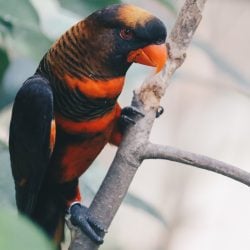 Bird & Parrot AnatomyJune 25, 2025How a Tiny Chemical Modification Makes Parrots Nature’s Living Paintings
Bird & Parrot AnatomyJune 25, 2025How a Tiny Chemical Modification Makes Parrots Nature’s Living Paintings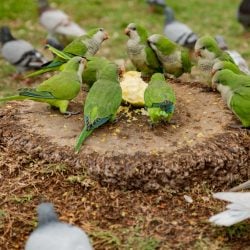 PigeonsJune 20, 2025How Do Parrots Thrive in Cities Outside Their Native Habitats?
PigeonsJune 20, 2025How Do Parrots Thrive in Cities Outside Their Native Habitats?


